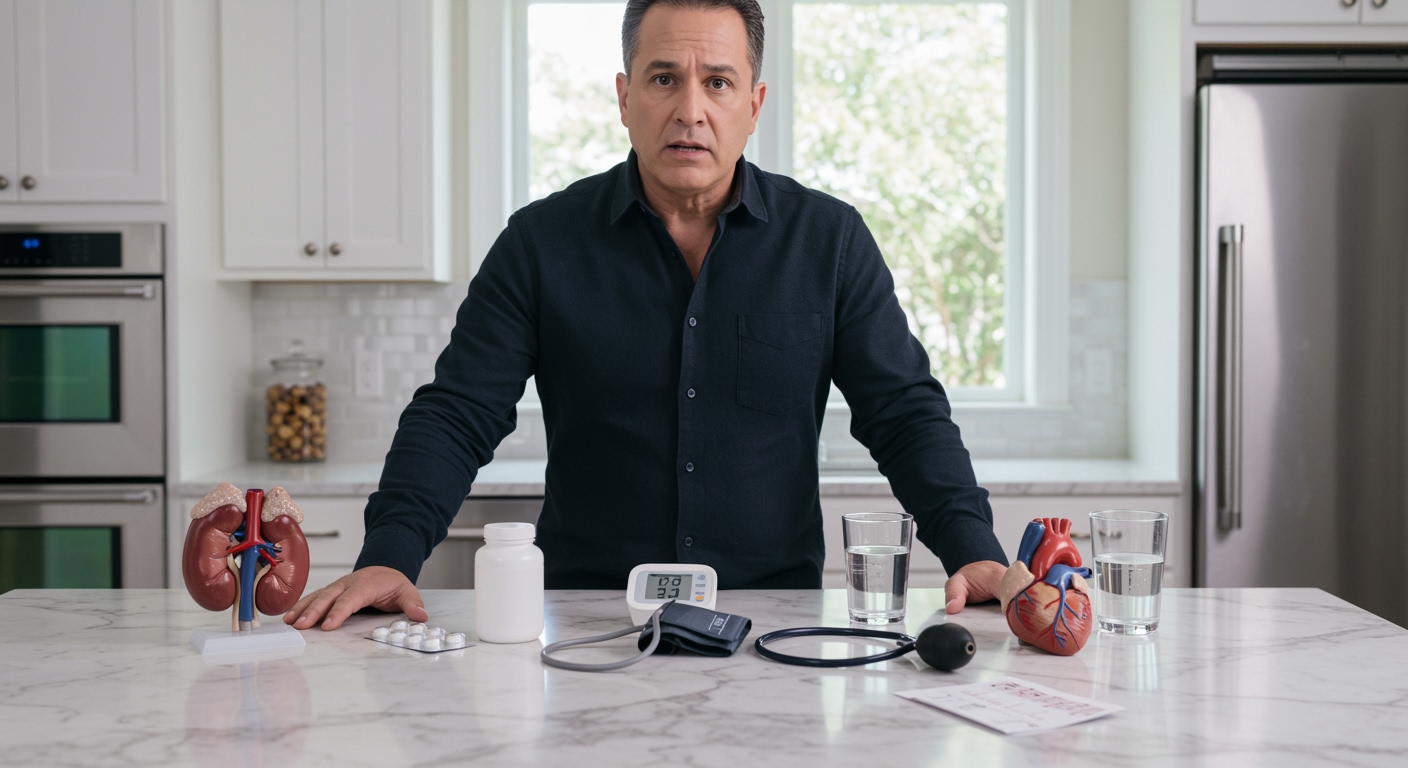✪ Key Highlight: Weight loss drugs cause significant weight regain within 8 weeks of stopping treatment, new research confirms.
Introduction
Weight loss medications promise dramatic results, but what happens when you stop taking them?
A groundbreaking new study published in BMC Medicine reveals that patients regain weight rapidly after discontinuing anti-obesity medications, with the process beginning as early as eight weeks after treatment ends.
Hi, I’m Abdur, your nutrition coach and today I’m going to analyze this important research about weight regain patterns after stopping weight loss drugs and what it means for your long-term health journey.
What Does The Research Actually Show?
The study examined patients who had been prescribed anti-obesity medications and then stopped taking them.
Researchers controlled for important factors like medication type, diabetes status, and lifestyle changes to get accurate results.
The findings showed that weight regain typically begins about eight weeks after patients stop their medication.
Over the next 20 weeks, the weight regain continues before it eventually levels off.
Lead author Dr. Xuejun Li from the Chinese PLA General Hospital explained that weight regain is a common phenomenon after discontinuing these medications.
The amount of weight regained depended on the specific drug used and how well patients maintained healthy lifestyle habits after stopping treatment.
✪ Fact: Patients using tirzepatide regained almost half their lost weight when switching to placebo after 36 weeks.
Why Do People Regain Weight So Quickly?
Weight loss medications work by affecting appetite hormones and brain signals that control hunger and satiety.
When you stop taking these drugs, your body’s natural hunger signals return to their previous state.
Your metabolic rate may also decrease as your body tries to regain the lost weight through evolutionary survival mechanisms.
The medications essentially provide artificial support for weight management that disappears when treatment ends.
People who made bigger changes to their diet and exercise during treatment were more likely to regain weight after stopping the drugs.
This happens because their bodies became dependent on the medication support to maintain these new habits.
✪ Pro Tip: Start building sustainable habits early in treatment rather than relying solely on medication effects.
Is This Pattern Unique To Weight Loss Drugs?
The research team found that weight regain is not unique to drug treatment alone.
Similar patterns have been reported after other weight loss interventions like gastric bypass surgery and vertical banded gastroplasty.
This means that keeping weight off is a universal challenge regardless of the method used for initial weight loss.
The pattern reinforces the idea that obesity is a chronic condition requiring long-term management strategies.
Simply stopping any weight loss intervention without a maintenance plan leads to disappointment and frustration for patients.
✪ Note: Obesity requires the same long-term management approach as other chronic conditions like diabetes or hypertension.
What Should Patients And Doctors Consider?
These findings are crucial for doctors and patients when deciding how to approach obesity treatment.
Anti-obesity drugs should not be seen as a quick fix but rather as one tool in a broader, long-term strategy.
The study suggests that continued lifestyle interventions and possibly long-term pharmacological support are necessary for people with obesity.
Patients need realistic expectations about what happens when treatment ends and proper preparation for maintenance phases.
Healthcare providers should develop comprehensive plans that include ongoing support systems beyond the medication period.
The focus should shift from short-term weight loss to sustainable lifestyle changes that can be maintained without pharmaceutical support.
✪ Pro Tip: Develop a detailed maintenance plan before starting any weight loss medication to ensure long-term success.
The Bottom Line
This research confirms what many nutrition experts have long suspected: weight loss medications provide temporary solutions to a chronic condition that requires lifelong management.
True weight management success comes from building sustainable habits that work without pharmaceutical support, not from depending on medications as permanent solutions.
I would love to hear your thoughts about this research and any experiences you might have with weight loss medications – please share your questions or feedback in the comment section below.
References
At NutritionCrown, we use quality and credible sources to ensure our content is accurate and trustworthy. Below are the sources referenced in creating this article:





